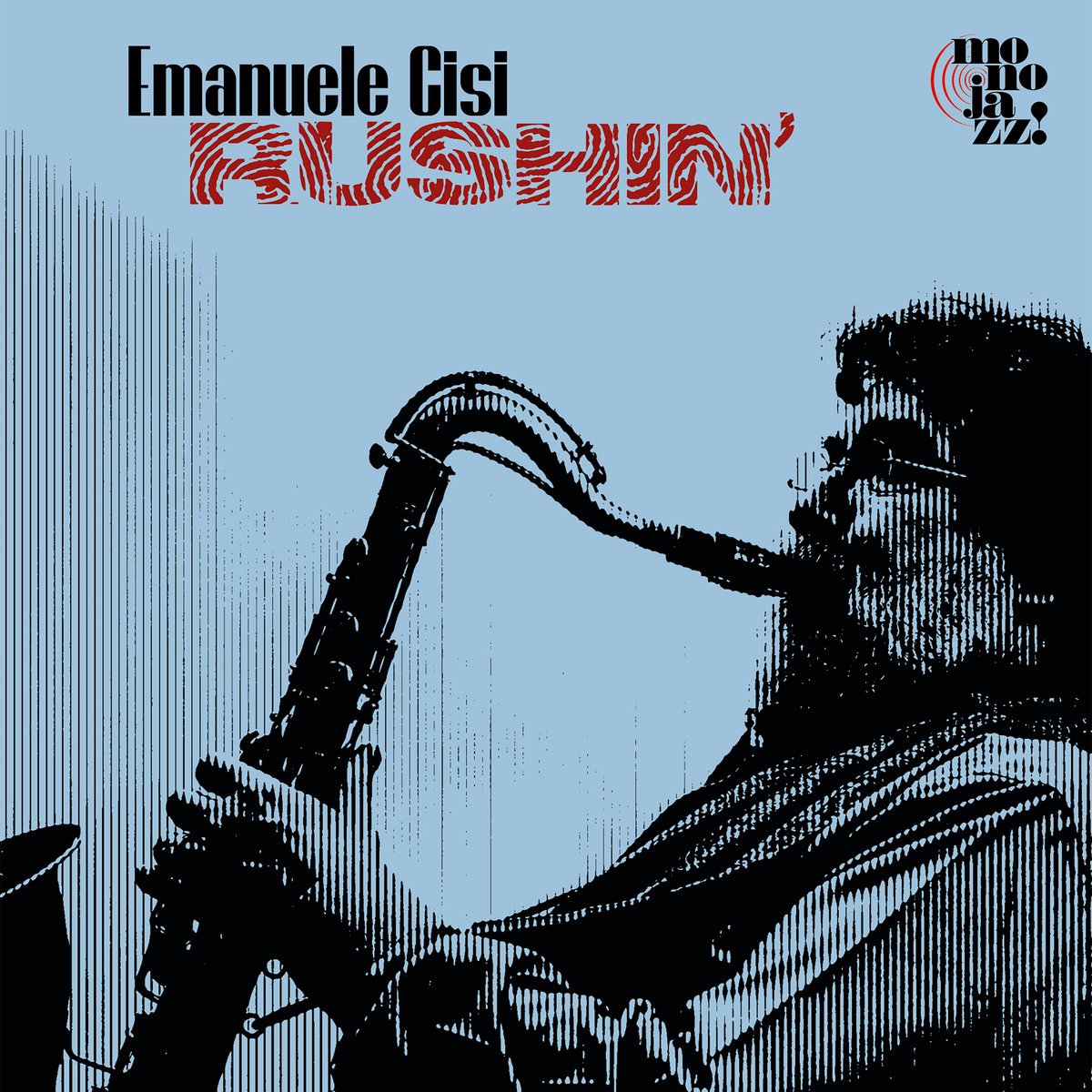Rushin’ - Emanuele Cisi
By: Soren Rasmussen
In jazz, perhaps more than any other genre, the music of the moment is undeniably linked to that of the past. Only in jazz must an artist pay his dues by extensively studying and covering standards, where encyclopedic knowledge of hundreds of tunes is merely part of the job description, to be recited at a moment’s notice. More than a rite of passage, jazz is as steeped in tradition as it is hell-bent on progress. Emanuele Cisi’s new album Rushin’ displays that fact in bold colours, a shining homage to the greats of the past and testament to the genre’s strength today.
Recorded on an April weekend in Torino, the record shines the warm air of an Italian spring. In the spirit of an old session record, the group took no more than two takes per song, preserving those rich moments of spontaneous musical discovery. Such moments can be found through every member of the group, a collection of four well established figures in European jazz and one emerging player. There’s Cisi himself, professor of saxophone at the Torino Conservatory of Music, a virtuoso who has played with such legends as Clark Terry, Jimmy Cobb, and Nat Adderley. Accompanying him are the pianist Dado Moroni, bassist Nicolas Thys, drummer Jorge Rossy, and Cisi’s student Cesare Mecca on trumpet, who appears in two tracks.
The album begins on a spiritual note with Cisi's ‘Pharoah's Message’, a wonderfully effervescent samba dedicated to saxophone legend Pharoah Sanders. The song begins subtly as instruments enter one by one, with Cisi himself last to enter with the melody, a catchy little theme reminiscent of a Kamasi Washington track. Together with the tune’s harmonic language, it’s instantly memorable, and my personal favourite off the album. Cisi retains the spiritual quality in his solos, which convey a strong influence from John Coltrane. He displays Coltrane’s distinct ferocity of tone without losing the ethereal quality of the track, a difficult balancing act he pulls off with grace. Dado Moroni then assumes the spotlight with a gorgeous piano solo that aptly references Cisi’s melody and lifts the song to new heights. Moroni is a widely celebrated Italian musician himself; he is professor of jazz piano at the Verdi Conservatory of Music in Turin and has collaborated with such giants as Oscar Peterson, Freddie Hubbard, and Ron Carter. His beautifully complex and endlessly entertaining solos are among the album’s constant highlights.
Two more original compositions directly follow in ‘The White Lie’ and ‘Rushin’’, altogether a bold declaration of Cisi’s own outstanding writing ability, which is particularly powerful after two and a half years since his last recorded originals. In an album steeped with influences and homages, the Cisi’s first three tracks assert his distinct voice, creating in his own right and not merely in emulation of his inspirations. He slows things down in ‘The White Lie’, a soft, nocturnal tune with a wistful soprano sax melody. We get our first solo from bassist Nicolas Thys, who gives the piece a distinct openness, heightening its dark atmosphere. During Moroni’s solo, Jorge Rossy’s drumming shines with brilliant rhythmic accents that keep the listener on their toes. Meanwhile, the titular ‘Rushin’’ goes full hard bop, reminiscent of Coltrane or Dexter Gordon, as Cisi returns to tenor in a bouncing, hard swinging tune. Yet again, Moroni demonstrates his improvisational mastery, with perfect harmonic tensions accompanying endlessly inventive melodic runs. Rossy follows with a refreshingly restrained solo on kit, prioritising expressive creative decisions over flashy displays of speed. The Spanish drummer, pianist, and vibraphonist, who has most notably toured and recorded as part of the Brad Mehldau Trio, holds the pocket with nothing to prove.
The album dives into an array of musical influences in the remaining seven tracks, weaving through a range of styles and moods, from a reflective rendition of Randy Weston’s ‘Hi Fly’ to Cisi’s own ‘Riverside Blues’. The young gun Cesare Mecca makes appearances in the Hank Mobley cover ‘My Groove Your Moove’ and Cisi’s homage to Lee Morgan in ‘Boogaloop’. Mecca shines in both pieces, holding his own among the quartet with confident, eloquent solos that perfectly suit the grooves of both pieces. Pianist Moroni even gets a new original in the mix with ‘Ile de Roume’, a song which starts with a bass solo and some wonderfully unorthodox sounds from Rossy at kit, establishing an eerie, disjunct atmosphere. The melody retains that eerie quality, creating a sleazy, noir-esque atmosphere, what the liner notes describe as blending “European sensitivity with a gentle Cuban influence.” Whatever its genetic makeup, the outcome is enchanting, and difficult to believe it’s a wholly new song on the album.
If any critique of the album can be justifiably made, it’s that Cisi’s group occasionally leans toward imitation rather than expression. The album has the distinct sound of a 60s Blue Note record, and at times the demonstrated influences — both conscious and unconscious — keep the group from trodding new ground. This is most evident in their rendition of ‘My Groove Your Moove’, whose extra “o” in the title is one of few notable differences. While clearly paying respects to Mobley, such admiration does prevent Cisi’s group from truly making the song their own, limiting a creative intensity so well displayed elsewhere.
Rushin’ is a distinctly collective experience. Like a film full of extraordinary character actors, each musician selflessly serves the wider performance, listening and building off one another in the pursuit of something greater. While recorded far from the music’s origins, Cisi’s album shows the global state of jazz today, and if the record is any indication, it seems jazz is doing more than fine.

